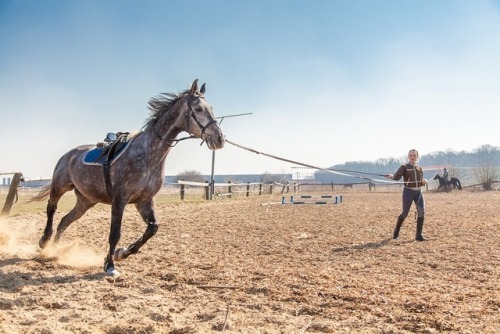
Switching Saddles
I recently got a new wheelchair. No big deal. Wrong! It’s an incredibly big deal. For so many reasons that are beyond the comprehension of masses merely because of a lack of experience. Unless you’ve been here and gone through this, you honestly have no idea just how drastically difficult it is to make this transition. A transition that virtually changes every single aspect of my life. That may sound like a bit of an exaggeration, but it isn’t, not in the least.
When you spend six years in one chair that happens to be your only means of transportation, you inevitably get pretty used to it. You get comfortable in it. Over time you’ve made all of the possible and necessary adjustments to the chair so that it would properly suit your body. Maybe it wasn’t perfect, things hardly ever are, but you did what you were able to in order to accommodate your needs and preferences.
Make sense? Good. Logically, once you get a new wheelchair you have to restart this whole personalization process. Does that sound annoying? Maybe just a little frustrating? Yes, yes it does. It can be taxing on so many levels, even emotionally. In fact, I remember the last time I made a wheelchair upgrade that the painful perplexion of the adjustment left me privately weeping inconsolably on one occasion.
I was much younger then, and still being in the throes of adolescent maturation the strain of the circumstance was compounded. This wasn’t something other teenagers even had to remotely deal with. As a whole we all deal with quite enough at that age, but once again I felt as though my additional burdens were too much to bear. I was already desperately trying to fit into life, and now I had to try and fit into an unfamiliar chair. An ordeal most disheartening because at that point I believed I was getting the hang of coping with Duchenne Muscular Dystrophy. Thus, the shock of such a restart violently jolted my existence.
Older and wiser now, I gratefully haven’t been affected to the same extent during my current acclimation. Nonetheless, there is still an unmistakable amount of lingering strain associated with the transition. The lengthy, tedious, and painstaking operation of alteration obviously remains. More than that, the need for further adaptation and orientation never seems to end. Even moreso, the agony is found in the grief accompanied by the reminder of my general state. Daily I do my best to clear my mind of my evident suffering, but the task of the circumstance makes that nearly impossible. In this case there’s nowhere to go, the affliction is ever present. Uniquely its own is the toll this does take.
So what does one possibly glean from this whole experience? Let me relate it to you by first of all explaining that I’ve gotten virtually nothing physically done during these several weeks of change. To my instinctually impatient and worrisome soul this is akin to a nightmare. Fortunately, in God’s faithful tradition of redemption, this period of time ought not to be seen as so. The Father, by the love of His Son and the power of His Spirit, has actively used every seemingly idle moment in my season of extended inaction.
He has used the season and its moments in a myriad of measurable ways. Ways that I have gradually recognized and been supremely comforted by at each recognition. I initially noticed increased self-control and discipline in the face of temptation. I still have progress to make, but that doesn’t take away from the fact that I’ve seen an improvement. I have also become aware of the Lord’s intention to instill a more mature sort of patience in me during this time. The fulfillment of that intent is apparent as well. I have seen it in my posture while waiting and have heard it in my speech while responding. But again, more work needs to be done as I am nowhere near perfection.
The final, and perhaps most important, use of the season I’ve seen has been the bolstering of my faith in a brand new way through recently attained as well as former, now strengthened, relationships. The recently attained have encouraged and affirmed me in ways that I could never expect from friendships so young. Brothers and sisters in Christ whom the Lord has specially gifted to me at this present moment. So impactful has this precious gift been that its goodness has overflowed into my longer lasting friendships. The cause of the newer’s effect has been a better use of my moments spent in the presence of the older. The translation; realer conversations and more meaningful interactions.
I thank my God for all that He has done during this period! And with that this season of ceasing comes to an end.
“To everything there is a season, A time for every purpose under heaven: A time to be born, And a time to die; A time to plant, And a time to pluck what is planted; A time to kill, And a time to heal; A time to break down, And a time to build up; A time to weep, And a time to laugh; A time to mourn, And a time to dance; A time to cast away stones, And a time to gather stones; A time to embrace, And a time to refrain from embracing; A time to gain, And a time to lose; A time to keep, And a time to throw away; A time to tear, And a time to sew; A time to keep silence, And a time to speak; A time to love, And a time to hate; A time of war, And a time of peace.” – Ecclesiastes 3:1-8
“…being confident of this very thing, that He who has begun a good work in you will complete it until the day of Jesus Christ;” – Philippians 1:6
“…that the sharing of your faith may become effective by the acknowledgment of every good thing which is in you in Christ Jesus. For we have great joy and consolation in your love, because the hearts of the saints have been refreshed by you, brother.” – Philemon 1:6-7


